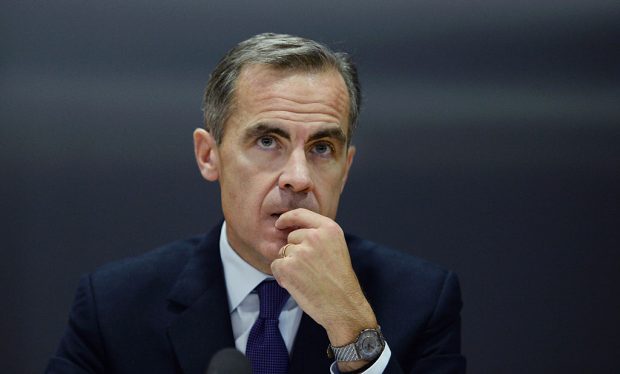Mark Carney’s appointment in 2013 as Governor of the Bank of England was almost universally applauded. Yet more recently Carney has become something of a divisive figure. His interventions during the referendum campaign angered many. While his economic policies have also come in for criticism, leading some to call for Carney to quit. So should the Bank of England chief listen to his critics or is it best for Britain’s economy that he stays put?
The Daily Telegraph says Carney has been hit by ‘referendum shockwaves’ and suggests that the attacks levied against him during the referendum – whether true or not – have undoubtedly placed him in an uncomfortable position. Despite the controversy, though, the paper says Carney is the right man for the job and that he should stay on in the role – but only if he keeps his mouth shut. The Telegraph describes the Bank of England chief as an ‘asset’ to Britain and says the speed of his response to the vote for Brexit on the morning of June 24th showed that he was one of the few who appeared to have been preparing for the possibility of a vote to leave. Yet while the paper makes clear in its editorial its preference for Carney staying put, it says it’s important he announces his intentions soon about whether he does want to stay in Britain or return to Canada. ‘We would urge him to take a speedy decision, for the current uncertainty will soon start to damage Britain’s economic position’, the paper says.
Brexit is also on the agenda in the Daily Mail’s editorial, with the firms who have ramped up their prices in the wake of the referendum coming in for criticism. The paper says that while sterling may have slumped, the price rises – including Apple’s decision to increase the cost of its latest ranges of products – are at a level which far outweighs the fall in the value of the pound. It hits out at the boss of tea company Typhoo, Somnath Saha, for calling Brexit ‘absolutely disastrous’ and saying that the price of a cup of tea will now rise as a result. ‘Shouldn’t he go back to school and brush up on basic mathematics?’, the paper asks. The Mail says Typhoo isn’t alone in using Brexit as an excuse, though, and it points out that the tendency for companies like Nissan to ask for assurances from the government also shows the formation of a pattern of ‘opportunism’ on the part of businesses, who are trying to capitalise on Brexit uncertainty. It goes on to say that while the impact of Brexit isn’t yet clear, it’s ‘contemptible’ for companies to ‘exaggerate the risks and exploit’ the unknown to try and make a fast buck out of the referendum.
Meanwhile The Times leans more towards the point of view of businesses as it calls on the government to be clearer about its plan for Brexit. The paper says the mystery surrounding the deal that convinced Nissan to stay put in Sunderland, and whether they’d offer the same terms to other carmakers and companies, was evidence of a ’drift’. It calls on Theresa May and the government to ‘settle what its broad aims are for Brexit’ and says that the current approach of offering assurances to individual companies will form a pattern that is ‘costly not only in terms of subsidies paid by taxpayers’ but which ‘also offends against the guiding principle of a market economy’ – ensuring a level playing field. It says that this aim of ensuring fairness in business and a level playing field for firms should be the guiding principle in Brexit negotiations. But it admits that even this ‘modest’ aim requires the kind of trained negotiators which Britain is currently lacking in.
The Sun has Jeremy Hunt in its crosshairs today, as it attacks the Health Secretary for failing to do anything about hospitals charging patients to park in its car parks. The paper says that last year NHS hospitals collected £116.2m in car park fees – with the actual tally likely to be much higher. The Sun says there is no excuse for hike in hospital parking charges and says it’s time for Hunt to ‘stop speaking and start acting’ on the issue.
Meanwhile, the Guardian says the decision of the FBI to announce a fresh probe into Hillary Clinton’s emails is ‘premature’ and ‘bad for politics’. While the Guardian admits that Hillary ‘is in many respects the author of her own problems on the email row,’ it says that FBI boss James Comey’s timing was wrong, and says a probe should have – for now, at least – been carried out behind closed doors. Instead, it says, his announcement on Friday of a fresh investigation is ‘at best naive and at worst an abuse of office’ – and the paper says that the ramifications in a contest where at least one of the candidates is already crying foul play could be huge.
Join The Spectator for a discussion on the Autumn Statement, taking place on 23 November 2016 at 6.30 p.m. at Soho’s Ham Yard Hotel. After the new Chancellor presents his financial statement, The Spectator’s chairman Andrew Neil, editor Fraser Nelson and political editor James Forsyth will discuss what it reveals about the government’s preparations for Brexit. A Q&A session and drinks reception follow. In association with Old Mutual Global Investors.








Comments